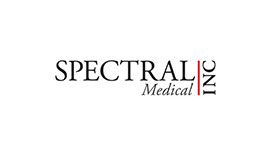TIGRIS TRIAL
A Prospective, Multilevel, Randomized, Open-Label Study to Evaluate the Efficacy and Safety of PMX Cartridge in Addition to Standard Medical Care for Patients with Endotoxemic Septic Shock
Protocol Number: SDI-PMX-NA003
Protocol Version: 4.2
Version Date: 18 Nov-2021

Study Investigators
- PI: Michael Seneff, MD
- Sub-I: Danielle Davison, MD
- Sub-I: David Yamane, MD
- Sub-I: Katrina Hawkins, MD
Study Objectives
- The primary objective is to compare the safety and efficacy of the PMX cartridge (Toraymyxin) based on mortality at 28 days in patients with septic shock and endotoxemia who are treated withstandard medical care plus the use of the PMX cartridge, versus patients who receive standard medical care alone.
- To compare changes in mean arterial blood pressure (MAP) from Day 0 to Day 3 in each group
- To compare the changes in vasopressor doses from Day 0 to Day 3 in each group
- To compare the survival time from baseline to death within 28 days in each group
- To compare mortality at 28 days post baseline for patients with baseline norepinephrine dose >0.1 mcg/kg/min in each group
- To compare mortality at 14 days post baseline in each group
- To compare total duration of vasopressor use from Day 0 to Day 3 in each group
Patient Population
Intensive Care Unit subjects with septic shock and endotoxemia.
Treatment Intervention
- The TORAYMYXIN PMX-20R (PMX cartridge) is a single-use extracorporeal hemoperfusion device to remove endotoxin from patients’ blood through direct hemoperfusion (DHP).
- Two (2) PMX cartridges will be administered approximately 24 hours apart to those subjects randomized to the treatment arm. Each treatment will target 2 hours with a minimum of 1 ½ hours, at a flow rate of approximately 100 mL/minute, (range of 80 to 120 mL/minute). Subjects in both the treatment and control arms of the study will continue to receive standard medical care for septic shock.
Inclusion Criteria
- 18 years of age or older
- Hypotension requiring vasopressor support: Requirement for at least one of the vasopressors listed below, at the dose shown below, for at least 2 continuous hours and no more than 30 hours*
- Norepinephrine > 0.05mcg/kg/min
- Dopamine > 10 mcg/kg/min
- Phenylephrine > 0.4 mcg/kg/min
- Epinephrine > 0.05 mcg/kg/min
- Vasopressin > 0.03 units/min
- Vasopressin (any dose) in combination with another vasopressor listed above (at any dose)
- Documented or suspected infection defined as definitive or empiric intravenous antibiotic administration
- The subject must have received intravenous fluid resuscitation of a minimum of 30mL/kg administered within 24 hours of eligibility
- Documented or suspected infection defined as definitive or empiric intravenous antibiotic administration
- The subject must have a screening multi-organ dysfunction score (MODS) >9 OR a sequential organ failure assessment (SOFA) >11, in the event a complete MODS cannot be obtained due to missing measurements**
- Endotoxin Activity Assay between ≥ 0.60 to <0.90 EA units
- Evidence of at least 1 of the following criteria for new onset organ dysfunction that is considered to be due to the acute illness:
- Requirement for positive pressure ventilation via an endotracheal tube or tracheostomy tube
- Thrombocytopenia defined as acute onset of platelet count <150,000μ/L or a reduction of 50% from prior known levels
- Acute oliguria defined as urine output <0.5mL/kg/hr for at least 6 hours despite adequate fluid resuscitation
Exclusion Criteria
- Inability to obtain an informed consent from the subject, family member or an authorized surrogate
- Lack of commitment for full medical support
- Inability to achieve or maintain a minimum mean arterial pressure (MAP) of ≥ 65mmHg despite vasopressor therapy and fluid resuscitation
- Subject has end-stage renal disease and requires chronic dialysis
- There is clinical support for non-septic shock such as:
- Acute pulmonary embolus
- Transfusion reaction
- Severe congestive heart failure (e.g. NYHA Class IV, ejection fraction < 35%)*
- Subject has had chest compressions as part of CPR during this hospitalization without immediate return to communicative state
- Subject has had an acute myocardial infarction (AMI) within the past 4 weeks
- Subject has uncontrolled hemorrhage (acute blood loss requiring > 3 UPC in the past 24 hours)
- Major trauma within 36 hours of screening
- Subject has severe granulocytopenia (leukocyte count less than 500 cells/mm3) or severe thrombocytopenia (platelet count less than 30,000 cells/mm3)
- HIV infection in association with a last known or suspected CD4 count of <50/mm3
- Subject’s baseline state is non-communicative
- Subject has sustained extensive third-degree burns within the past 7 days
- Body weight < 35 kg (77 pounds)
- Known hypersensitivity to Polymyxin B
- Subject has known sensitivity or allergy to heparin or has a history of heparin associated thrombocytopenia (H.I.T.)
- Subject is currently enrolled in an investigational drug or device trial
- Subject has been previously enrolled in the current trial
- Any other condition, that in the opinion of the investigator, would preclude the subject from being a suitable candidate for enrollment, such as end-stage chronic illness (eg. lack of source control and bowel necrosis) with no reasonable expectation of survival to hospital discharge